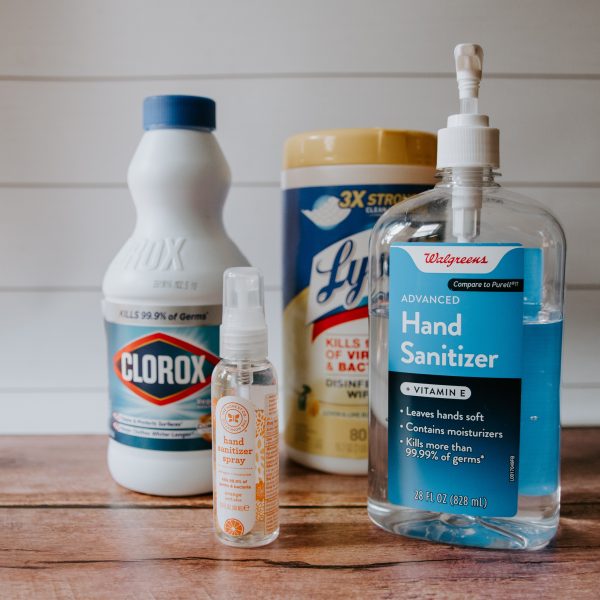COVID-19 updates for Victorian services as new school year begins

Kim Little, Deputy Secretary Early Childhood Education from the Department of Education and Training Victoria, has issued an update about COVID-19 protocols for early childhood education and care (ECEC) services, covering required vaccination dates and provider responsibilities, supply and security of rapid antigen tests (RATs), streamlined contact management, service closures and professional learning options.
Required vaccination dates and provider responsibilities
Effective from 11.59pm 25 January 2022, the Pandemic Orders require all education staff, including those in ECEC, to receive a third dose of the COVID-19 vaccine to be onsite in an education setting.
The Pandemic Orders require that, unless an employee has a valid medical exemption, education workers will not be permitted to attend a ECEC service if they have not received a third dose by the relevant deadline:
- For workers who received their second dose of a COVID-19 vaccination on or before 25 October 2021, the deadline is 25 February 2022.
- For workers who received a second dose of a COVID-19 vaccination after 25 October 2021, the deadline is 15 March 2022.
The Australian Technical Advisory Group on Immunisation (ATAGI) advises that a previous COVID-19 infection is not a contraindication to COVID-19 vaccination. Vaccination can occur after a COVID-19 infection and there is no requirement to delay vaccination after recovery from acute illness.
Workers for ECEC services include:
- ECEC employed staff (e.g teachers, educators, ancillary support staff including reception)
- Contractors working near children or staff (e.g. trades and maintenance persons, cleaners but excluding delivery drivers)
- Staff of the Department of Education and Training that are entering the service (e.g. authorised officers, Early Childhood Improvement Branch staff)
- Staff of any other entity that are entering the service (e.g. allied health, NDIS, school readiness funding providers; KIS, PSFO, etc)
- Volunteers working near children or staff (e.g. parent helpers, Committee of Management members)
- Students on placements.
Note – the examples provided in the brackets are for explanatory purposes and do not represent an exhaustive list.
ECEC providers are familiar with the requirements to collect, record and hold vaccination information of education workers. With the introduction of the required third dose to be onsite, ECEC providers must collect, record and hold their employees’ current vaccination status, specifically, record of the dates of first, second dose and third dose or exemption.
If the employee has not had the third dose, ECEC providers must:
- collect, record and hold the applicable third dose deadline for the employee based on the date they received their second dose (on or before 25 October 2021, the deadline is 25 February 2022; after 25 October 2021, the deadline is 15 March 2022)
- subsequently record the date they received the third dose.
The ECEC provider will be required to sight and record evidence of the third dose of any other non-employed or contracted education worker on site based on their eligibility, either after 25 February or after 15 March 2022.
If a worker does not meet the COVID-19 vaccination third dose requirement and does not have an approved medical exemption, the worker cannot be onsite at an ECEC service on or after 25 February or 15 March 2022 based on when they had their second dose.
The only acceptable certification for the purpose of seeking a medical exemption will be an Australian Immunisation Register immunisation medical exemption form that is completed and signed by an authorised medical practitioner.
The form must state that the person is unable to receive a dose, or a further dose, of a COVID-19 vaccine because they have a medical contraindication to all COVID-19 vaccines available for use in Australia and/or they are unable to receive a vaccine due to an acute medical illness (including where the person has been diagnosed with COVID-19).
Providers are encouraged to support all staff to access the required third dose vaccine by offering flexibility to attend appointments (for example, by providing leave). For more information, including how to book and information about walk-in vaccination sites, refer to COVID-19 vaccine third dose.
RAT updates
Delivery of RATs has now commenced, and “will progress as quickly as possible on the business days in the first week of Term 1”.
Services will be provided with one test pack per staff member, to cover two weeks’ of testing twice a week, and will receive a future delivery of another test pack per staff member, to cover another two weeks.
Updates about RAT delivery will be sent to the email address nominated as service email in the NQAITS (as at 19 January). Services operating under the Children’s Services Act have also been included in the distribution.
Services are cautioned to not break up test packs, where they believe they do not have enough of them. “It’s important that staff get the entire pack given it contains the detailed instructions on how to use them plus the components for their use,” Ms Little wrote.
“Rapid antigen tests remain the property of the Department of Education and Training and are to be used for their sole intended purpose only – twice weekly testing by staff of the ECEC approved provider, working at the service. As soon as possible after receiving these tests, you must provide them to your staff members.”
For family day care providers the tests are being delivered to the nominated head office, who are then responsible for distributing these tests to educators as quickly as possible. Providers and services must not provide these tests to people outside their intended purpose, whether for free or sale.
It is the responsibility of the provider and service to ensure that tests are stored securely – this means in a locked room or cupboard at all times, with limited access by appropriate staff only for the purposes of distribution to service staff.
ECEC services that are co-located with schools (OSHC, LDC and sessional kindergarten), will receive a separate delivery of test packs specific to the service – i.e. it will not be bundled with their school test packs.
In the event that a service does not have enough packs to provide one for each service-employed staff member (which provides for the first two weeks of term), please contact [email protected]
For those services who believe they have been over-supplied, that is, those who will have a surplus after providing a pack for each staff member, please also contact [email protected] and provide the relevant details.
Further information on delivery and use is available at Rapid antigen test information for Early Childhood Education and Care staff.
New streamlined Contact Management process
A new streamlined process for notifying potential contacts as groups or cohorts at an ECEC service will be effective from Monday 31 January 2022.
- Positive cases are required to notify their ECEC service if they have been onsite 48 hours prior to symptom onset, or test collection date for asymptomatic cases.
- The ECEC provider or nominated supervisor must submit a notification through the National Quality Agenda IT System (NQAITS) as soon as they become aware that a child, parent, contractor, or worker has been onsite during their infectious period.
- ECECs must notify the ECEC community through a daily email (where applicable) when a child or staff member has (or multiple children or staff members have) returned a positive COVID-19 test result and had attended the service. The letter should include dates of attendance and the affected age group room/program room. The notification can be provided to only the affected age group room/program room or to the whole service.
- The letter will ask families and staff to monitor for symptoms and if symptomatic test and if positive isolate for seven days.
Further details and the communication template will be available shortly.
Service closures
Funded kindergarten services, like all ECEC services, must submit a notification in NQAITS if they are fully or partially closing for any period of time. If a funded kindergarten service needs to close or restrict face-to-face delivery to a subset of children (i.e. essential worker and vulnerable children) for more than three days they must also contact the local DET area Early Childhood Improvement Branch to discuss and seek approval.
“No funded kindergarten service should be closing the service for some or all children, or moving to learning from home, for more than three days without this discussion and approval from DET,” Ms Little said.
Reduced professional learning activities to maximise staffing availability
To support ECEC services to have maximum staff available at the commencement of Term 1, a range of departmental professional learning activities will be temporarily paused for the first six weeks of Term 1, 2022.
This pause affects the following programs, including but not limited to:
- Three-Year-Old Kindergarten Teaching Toolkit Professional Learning Tranche 3 (previously due to commence Monday 14 February will be paused until Monday 14 March 2022). Please email [email protected] with any queries.
- School Readiness Funding (SRF). Menu providers and Allied Health Providers will be advised to be responsive to service needs and priorities at this time, in line with the expectation that services are to maintain on site delivery as their number one priority. The capacity of some Allied Health providers to deliver SRF supports will also be impacted by the Code Brown status in place across the broader health system, and the SRF Unit will monitor this with providers.
- Mentoring and Coaching. Providers will be responsive to teacher workload and may result in sessions being delayed across the first six weeks of Term.
- Early Childhood Languages Program. Advice will be provided to ECLP teachers to support services where they can with staffing shortages, which may include them leading the program for short periods of time to ensure programs can continue on-site (excluding Koori and Auslan teachers).
Project teams will communicate directly with affected services and individuals and make arrangements for professional learning activities to recommence at future dates.
For more information please view the Department’s COVID-19 early childhood education and care page, or the following quick links for ready access to key resources and supports:
- COVIDSafe ECEC Settings Guide
- Worker vaccination requirements
- Vaccination information for children and teenagers
- Rapid antigen test information for Early Childhood Education and Care staff, available from Monday 31 January 2022
- COVID-19 Contact Management in ECEC Services Action Plan and communication template
- Pandemic Order Register.
The Department’s Early Childhood COVID-19 Advice Line is also available weekdays from 8.30am to 5pm on 1800 338 663. Those who need an interpreter should call 131 450 first.
Popular

Quality
Provider
Policy
Practice
WA approved provider fined $45,000 over bush excursion incident
2025-07-01 07:00:01
by Fiona Alston

Workforce
Policy
Quality
Practice
Provider
Research
ECEC must change now, our children can’t wait for another inquiry
2025-07-02 07:47:14
by Fiona Alston

Quality
Practice
Provider
Workforce
Child left in storeroom at Sydney centre sparks concerns over supervision and trauma support
2025-06-30 09:09:58
by Fiona Alston













